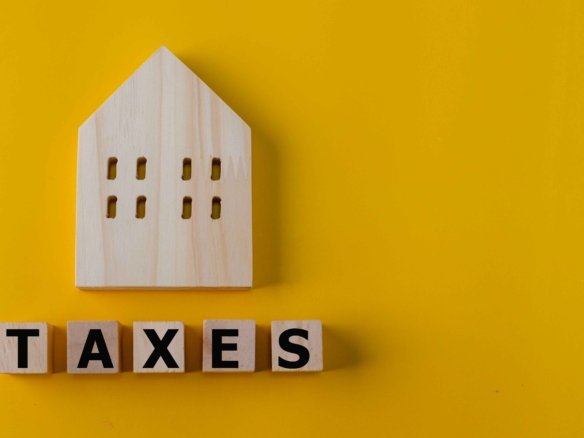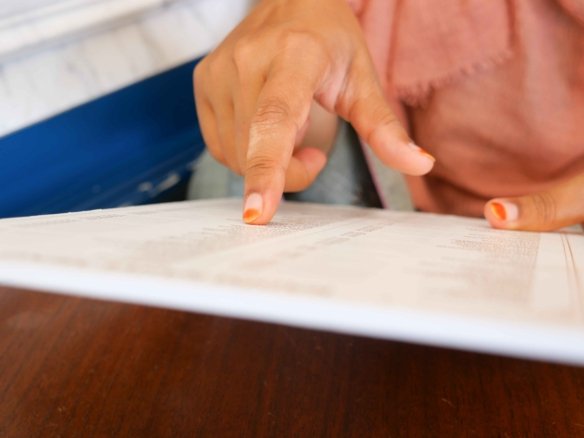Tax deed auctions in USA County present a unique opportunity for real estate investors, potential homeowners, and individuals interested in property acquisition. However, before diving into the auction room, it’s important to understand the process, requirements, and key considerations to ensure a smooth and successful experience.
In this article, we’ll walk you through what you can expect at a real tax deed auction in USA County, providing useful insights to help you navigate this exciting yet complex real estate investment opportunity.
What is a Tax Deed Auction?
A tax deed auction is a public sale held by the county to sell properties that have been seized due to unpaid property taxes. When a homeowner fails to pay their taxes, the county will eventually place a lien on the property and, after a certain period, will auction the property off to recover the unpaid taxes.
In USA County, tax deed auctions are a significant way to acquire properties at a fraction of their market value. When you win a tax deed auction, you will acquire full ownership of the property, free from the previous owner’s debts. However, it is important to note that these properties are sold as-is, often without much opportunity for inspection, so it’s crucial to do your due diligence.
Preparation is Key
Before participating in a USA County tax deed auction, thorough preparation is essential. Here’s what you should do beforehand:
1. Understand the Process
USA County auctions tax deeds online, meaning you can access the auctions remotely from the comfort of your own home. Familiarize yourself with the process by visiting the county’s tax auction website. The auction rules, registration process, payment requirements, and the list of available properties are typically posted online ahead of time.
2. Research Available Properties
Each auction has a catalog of properties that will be up for bid. This list is usually published well in advance, allowing you time to research individual properties. Make sure to review the location, condition, market value, and potential risks associated with the property. For instance, a home in a desirable neighborhood could be a great investment, while properties in less desirable areas may carry more risk.
3. Set a Budget
Because tax deed auctions are competitive, it’s easy to get caught up in the excitement and bid more than you intended. To avoid overpaying, set a strict budget for yourself before the auction. This will help you stay grounded and focused on what you’re truly willing to pay for the property.
4. Conduct a Title Search
While the property may come with the deed, it’s still important to perform a title search. This search will reveal if there are any other claims on the property, such as additional liens, or if there are any pending legal issues that could complicate your ownership. You can perform a title search through the USA County Clerk’s office or hire a title company to do it for you.
5. Attend Pre-Auction Webinars or Seminars
Many counties, including USA, offer webinars and seminars designed to help bidders understand the process. These events can give you insights into the logistics of the auction, provide tips on winning bids, and offer a chance to ask questions from professionals who know the ins and outs of tax deed sales.

What Happens During the Auction?
Once the auction begins, you’ll have the opportunity to bid on the properties you’ve researched. Here’s an overview of what to expect on auction day:
1. Online Bidding
In USA County, tax deed auctions are conducted online. Bidders can place bids on individual properties through the auction platform. The bidding typically starts at the amount owed in back taxes plus any additional fees. Be aware that bidding can get intense as multiple bidders may be vying for the same property.
2. Auction Rules
The auction has specific rules regarding bidding increments, payment deadlines, and eligibility. Bidders must abide by these rules to remain in the auction. Make sure you understand all the terms before you start bidding. If you’re the winning bidder, you’ll be required to pay for the property immediately or within a short period (usually 24 hours), so it’s important to be prepared with the necessary funds.
3. No Returns or Refunds
Once you win the bid, the property is yours. There are no returns or refunds, so be sure that you’re comfortable with your purchase. Make sure you’ve thoroughly researched the property and that you understand the risks associated with the acquisition.
4. Winning the Bid
If you win a bid, you’ll receive a tax deed for the property. This deed will transfer ownership to you, and the county will initiate the process of recording the deed with the county clerk. However, keep in mind that the previous homeowner may have a right to redeem the property within a certain time frame (usually six months). If they do redeem the property, you’ll be refunded the amount you paid, along with interest, but you will lose the property.
Post-Auction Considerations
After successfully winning a tax deed auction, there are a few post-auction tasks to consider:
1. Payment and Fees
Winning the auction doesn’t mean you’re finished paying. In addition to the amount you bid, you’ll also be required to pay any associated auction fees and other costs that may apply. These fees can vary, so it’s crucial to check the specific auction terms.
2. Clear the Title
While you acquire ownership of the property with the tax deed, the title might still need to be “cleared” if there are any remaining legal claims. Sometimes, properties in tax deed auctions come with hidden issues, such as unresolved liens or other debts that might not be immediately obvious. You’ll need to address these before the property can be sold or fully utilized.
3. Eviction of Previous Owner (If Necessary)
In some cases, the previous homeowner may still be living on the property after the auction. If this happens, you may need to pursue an eviction process to remove them. This can take time and money, so it’s essential to factor this into your post-auction strategy.
4. Assess and Renovate the Property
Once you have taken possession of the property, you may need to invest in repairs, renovations, or legal work to bring the property up to market standards. You’ll also want to consider whether to rent, sell, or hold the property for future appreciation.
Risks and Rewards
Investing in tax deed properties can be highly profitable, but it also comes with risks. Properties sold at auction are often sold as-is, and you may face hidden costs for repairs or legal matters. Additionally, the previous owners may contest the sale or attempt to reclaim the property.
However, if you do your homework, set a budget, and are prepared to deal with the complexities of post-auction ownership, tax deed auctions can provide a lucrative way to build wealth through real estate.
Conclusion
A tax deed auction in USA County is an exciting opportunity for savvy investors, but it’s not without its challenges. By understanding the auction process, preparing thoroughly, and knowing what to expect, you can significantly increase your chances of success. Take your time to research, set a budget, and always weigh the risks and rewards before making your bid.
For more information on upcoming USA County tax deed auctions, be sure to check out resources like TDHunter, which provide valuable insights and tools to help you navigate the auction process with confidence.






Join The Discussion